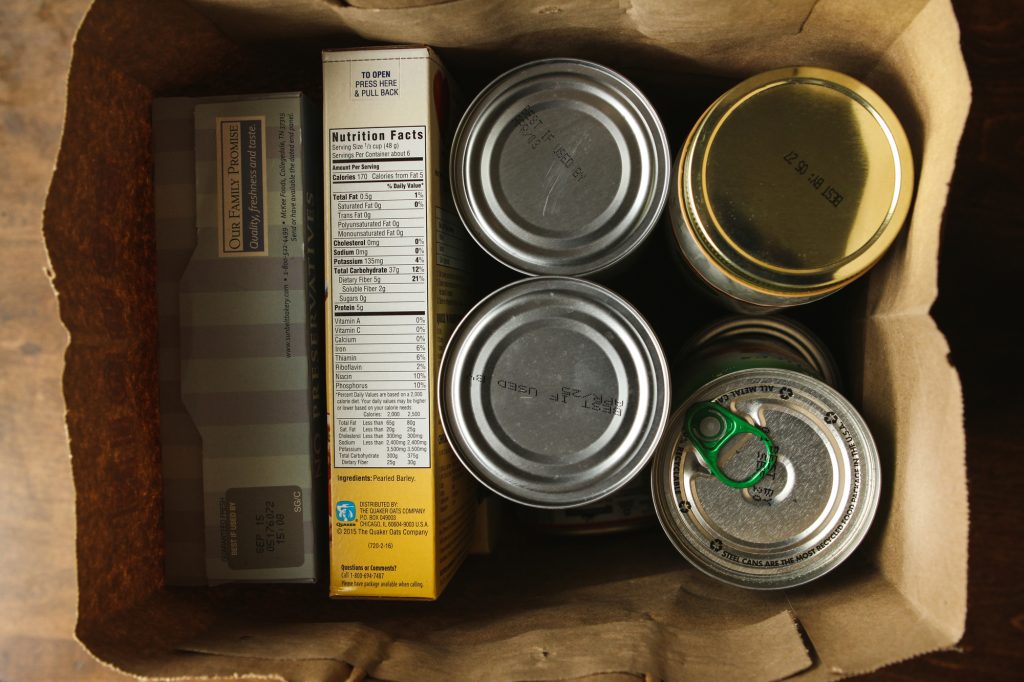Eleven United Methodist churches and Hope Centers have received emergency grants from the New Jersey Pandemic Relief Fund (NJPRF), launched March 24, to help distribute food to the more than one million residents in vulnerable communities across the state.
The churches are:
- St. John’s United Methodist Church (Fordville), Bridgeton
- Loaves and Fishes Food Pantry, Butler United Methodist Church, Butler
- Dover United Coalition, including First United Methodist Church, Dover
- St. John’s United Methodist Church, Hazlet
- St. Luke’s Food Pantry, Long Branch (also a Hope Center)
- Pantry in the Glen, Stanhope United Methodist Church, Netcong
- Lunch Break, Red Bank United Methodist Church, Red Bank
- Sparta Ecumenical Food Pantry, Sparta United Methodist Church, Sparta
- Hope United Methodist Church, Voorhees
Hope Centers are:
- CUMAC, Paterson
- Norwescap Traditional Family Success Center, Phillipsburg
Grants also were awarded to several interfaith food pantries that have United Methodist churches participating:
- God’s Interfaith Food Table, including Centenary United Methodist Church, Berlin
- Dover United Coalition, including First United Methodist Church, Dover
“When people hurt, United Methodists help,” said Bishop John Schol of the United Methodists of Greater New Jersey. “During the pandemic, after health, food insecurity has emerged as the most immediate need in our communities. We are thankful to the NJ Pandemic Relief Fund for recognizing the important role United Methodists play in food distribution throughout the region.”
There are 530 United Methodist congregations and 23 Hope Centers throughout New Jersey and small portions of New York and Pennsylvania.
“We founded A Future With Hope to address long-term disaster recovery when Superstorm Sandy hit our region,” Bishop Schol continued. “Our leadership in disaster recovery makes us well positioned to deploy resources in the face of the COVID-19 pandemic. The people in our congregations are engaging their communities with resources – distributing food, sewing masks, supporting frontline workers and providing spiritual and emotional support.”
Rick Reinhard, executive director of A Future With Hope, said, “We have hundreds of food pantries throughout the region, and we are working with them to increase their capacity either singularly or by combining efforts with other local food pantries to make a more regional approach. Our food pantries have had to transform to distribution centers that adhere to the state’s guidelines for appropriate social distancing, which means they’ve had to act quickly and creatively to continue food distribution – including curbside pick-up, porch delivery and parking lot drop offs.”
The current food security grants range from $5,000 to $25,000 and are awarded to organizations affiliated with the three main food banks in the state – Community FoodBank of NJ, the South Jersey Food Bank and Fulfill (formerly Food Bank of Monmouth and Ocean Counties)
“We organized the NJPRF to meet four critical challenges of our state in the face of the COVID-19 crisis,” said Tammy Murphy, First Lady of New Jersey and founder of NJPRF, “Stop the spread, support the healthcare community, provide help for the vulnerable, and rebuild. We begin with this food distribution effort, as it is one that is most urgent.”
“Without this assistance, some pantries might have had to close their doors or reduce services, leaving neighbors searching for their next meal and putting additional pressure on the other local organizations,” Murphy said.
“In addition to food distribution, our churches have become critical food collection sites to help stock the pantries. Although only a few received financial rewards from the fund, hundreds of our congregations and thousands of our people are participating in food distribution in incredibly meaningful ways,” said Reinhard.

